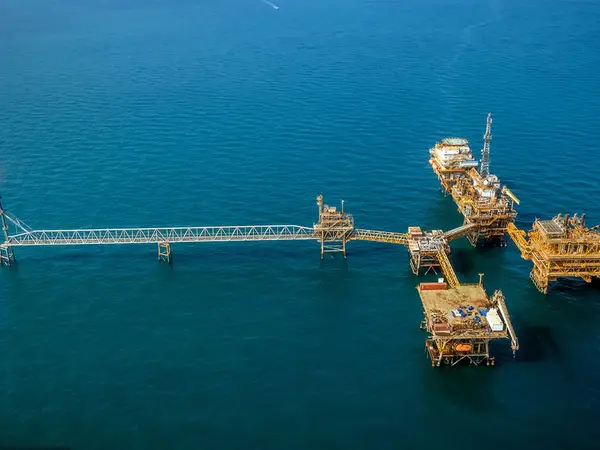Just a day after Kuwait insisted that Iran has no right over a maritime field in a divided area, Saudi Arabia asserted their “exclusive” right over the field.
Citing the foreign ministry, Saudi state news agency SPA said on Tuesday that the kingdom enjoys “full rights” along with Kuwait to the disputed gas and oil field in the resource-rich Persian Gulf, a declaration that came after Tehran said it was preparing to start drilling.
Called Arash in Iran and Durra or Dorra by Saudi Arabia and Kuwait -- the offshore field was discovered in 1967 and is estimated to have a total proven reserves of around 310 million barrels of oil and 20 trillion cubic feet of gas.
Iran claims any development without its consent breaks international laws, 40 percent of the field located in its territorial waters. However, Saudi Aramco Gulf Operations Company signed a Memorandum of Understanding in December with Kuwait Gulf Oil Company (KGOC) to develop the joint gas field, leaving Iran out of the project. Outraged by the snub, Iran said it has a stake in the field and called the Saudi-Kuwaiti agreement "illegal".
However, it evoked an angry response. “The natural resources in the divided area, including the entire Al-Durra field, is jointly owned by the Kingdom of Saudi Arabia and the State of Kuwait only,” said a Saudi foreign ministry official, claiming that “only these two states have full sovereign rights to exploit the wealth in that region.”
Both Saudi Arabia and Kuwait also renewed their call on Iran to start negotiations on the demarcation of the disputed area with the two Arab countries as one negotiating party.
On Monday, Kuwait’s foreign ministry issued a statement echoing Saudi's claims. Also calling on Tehran to start negotiations, Kuwaiti Oil Minister Saad Al-Barrak said: “We categorically and totally reject Iran’s planned activities around the premises of the Durra offshore gas field."
Earlier in March, Kuwait and Iran had held joint negotiations in Tehran regarding the demarcation of their maritime borders, where both sides stressed the need to settle the matter according to international laws.
An unnamed official of the National Iranian Oil Company told the Kuwaiti newspaper Al-Jarida that the first round of negotiations between the foreign ministries of Iran and Kuwait regarding the delineation of the maritime borders "was not fruitful".
Iran’s Economy Minister Ehsan Khandouzi, who led an economic delegation to the Saudi city of Jeddah in May, sought to address the issue in his trip but the Saudi side rejected calls for discussions, claiming Riyadh has no joint field with Iran that it wants to discuss, prompting Iran to announce plans for drilling operations in the field.
The dispute over the Dorra field stretches back to the 1960s, when Iran and Kuwait each awarded an offshore concession, one to the Anglo-Iranian Oil Company, the forerunner to BP, and one to Royal Dutch Shell. The two concessions overlapped in the northern part of the field, whose recoverable reserves are estimated at some 220 billion cubic meters (seven trillion cubic feet).
Described by Iranian social media users as “the end of the honeymoon” phase following the recent détente between Tehran and Riyadh, the latest round of controversies surrounding the field operations arose after Mohsen Khojsteh-Mehr, the managing director of the National Iranian Oil Company, said last week that "there is full preparation to start drilling in the joint Arash oil field" and that “considerable resources” had been allocated to explore the offshore field.
Last week, Saudi Arabian Oil Company and TotalEnergies signed an $11 billion contract to build a petrochemicals complex near the offshore field.
Criticizing the Iranian government’s inaction vis-a-vis the project, Chairman of the Board of Directors of the Association of Iranian Oil and Gas Drilling Companies Hedayatollah Khademi told ILNA news website in Tehran last month: “It seems that we have surrendered the joint fields to the neighbors.”
Highlighting the fact that Riyadh has significantly developed and extracted from joint fields such as Arash/Durra, Farzad-A, Farzad-B, and Forouzan despite the fact that Iran dug the first exploratory wells in the fields, he said the regime has "not done anything" in the face of encroachment.
